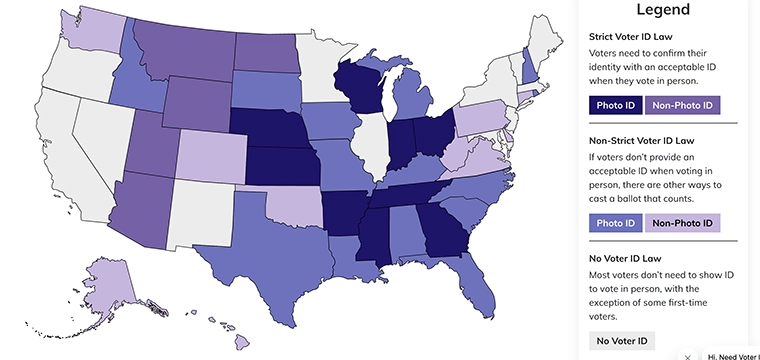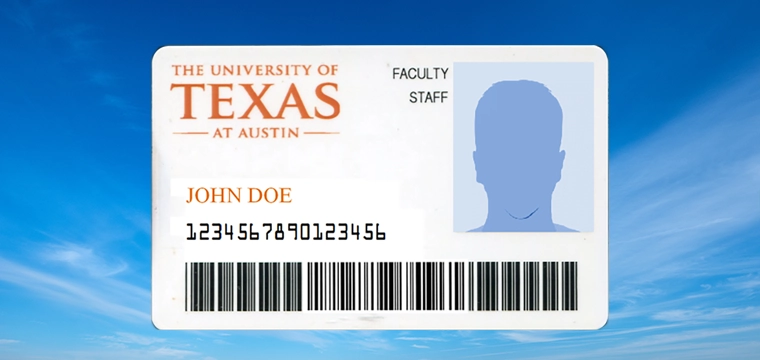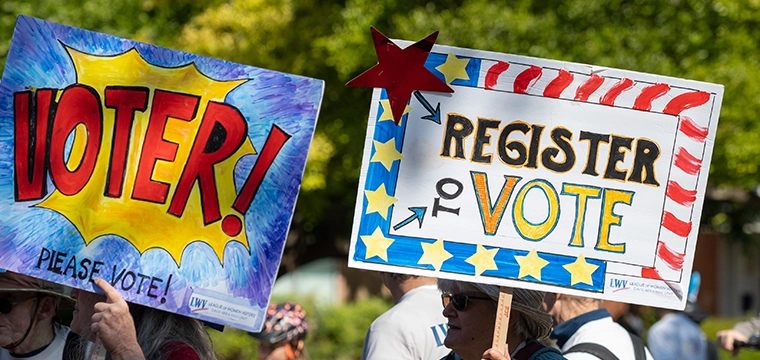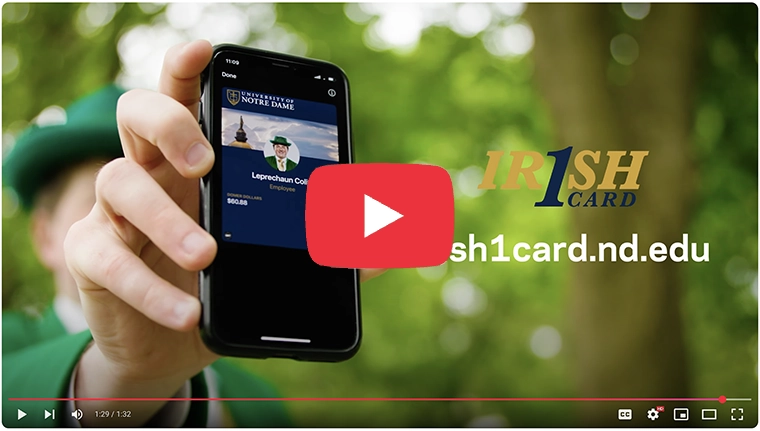
Legislation to end use of student IDs for voting prevalent, but voter stats suggest the IDs are seldom used
The use of campus cards as voter IDs is hot topic nationally, as numerous state legislatures push for stricter laws. One side calls it fraud prevention, the other voter suppression.
Currently, 12 states and the District of Columbia do not require an ID for in-person voting so the question of student ID acceptance is irrelevant in those locales. That leaves 38 states that require an ID to vote, and nine will not accept a campus card. The remaining 29 states accept the student ID, though restrictions apply and differ from state to state.
Most require that the ID be from a post-secondary institution and include a photo. From there, things get fluid.
In Kentucky's 2023 general election, 99% of the 1.1 million in-person voters used a driver’s license as their ID. A student ID card was used just 354 times.
Rules surrounding the expiration date vary. Some states require that the campus card include an expiration date, but others do not. Some require that if the ID has an expiration, it must be current. Other states grant a grace period that enables acceptance of a recently expired ID.
Certain states require that the ID must also contain a signature. Because most campus cards eliminated signatures years ago, this has restricted use of some institution’s campus cards in states with this requirement.
Florida, for example, accepts student IDs at the polls but requires that all voter IDs include a signature. This blocked campus IDs from some Florida institutions.
Several years ago, Florida State University students lobbied administration to add a signature panel to the FSUCard to facilitate voter ID. In Spring 2021, the redesigned FSUCard complete with signature panel launched.
Kentucky is among the states with bills proposed that would outlaw the existing use campus cards for voter ID. The Kentucky bill passed in the Senate and is awaiting next steps.
Proponents of the bill point to mass voter fraud with student IDs as its genesis, but voting records show extremely minimal use of campus cards.
According to Lexington’s NPR station WEKU, in the 2023 general election in 109 of Kentucky’s 120 counties, more than 99% of the 1.1 million in-person voters used a driver’s license as their ID.
A student ID card was used just 354 times. That is 354 out of 1.1 million voters.
In the counties that are home to the state’s two largest institutions, University of Kentucky and University of Lousiville, just 89 and 81 voters used a student ID at the polls.
Additionally, WEKU notes that the Kentucky Attorney General’s office has not received a single complaint of fraud involving a campus card since the state’s new voter ID law – that first enabled acceptance of student IDs – was passed in 2020.
To many, this dispels the threat of mass voter fraud. At least in Kentucky.
Still the bill’s sponsor points out that laws are not written because of things that have already happened, but to close loopholes and prevent problems from happening.
Voter ID is an issue that is split down partisan lines, and universities and their campus card offices sit squarely in the middle.
Institutions strive to best serve their students, but should a campus modify its program to meet state voting requirements?
At Florida State University, they added a signature panel. But if the use among students is as low as the numbers reported from Kentucky, was it worth the effort and expense?
In Kentucky, the law that first granted acceptance of campus cards was enacted just four years prior, and it is now likely to be abolished. The impact of any changes made by institutions in the state were short lived.
It is always hard to hit a moving target.
To find out if your institution’s campus card can be used as a voter ID in your state, check out the guide at VoteRiders.org/student.




